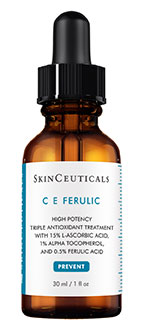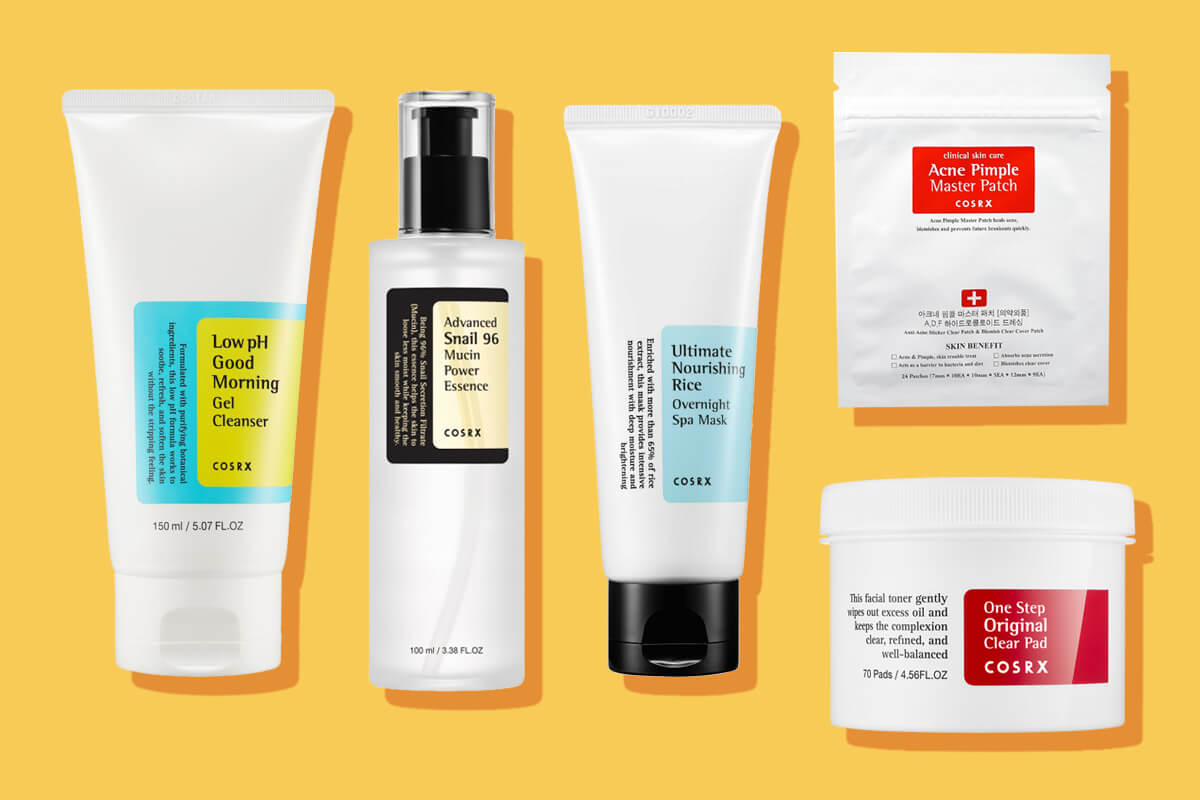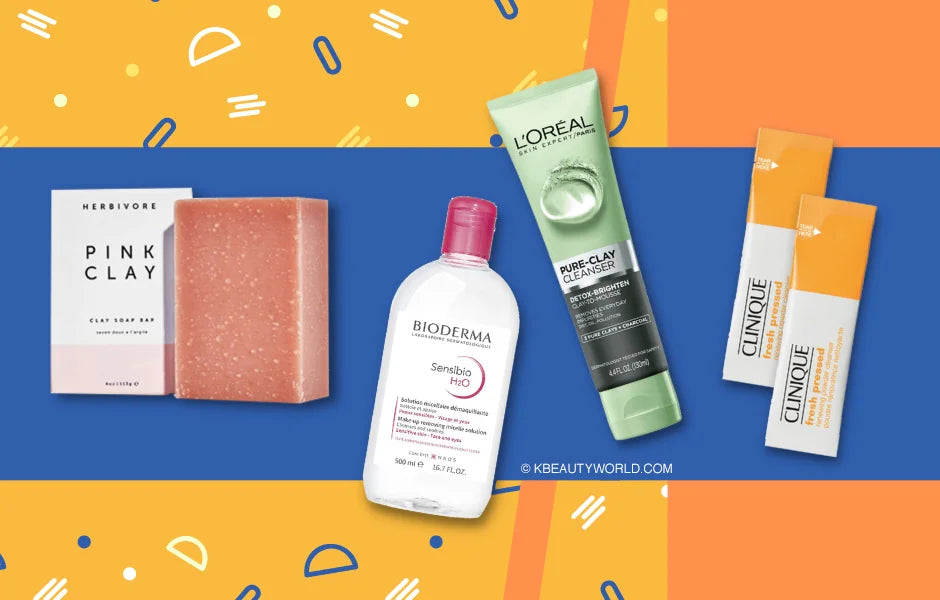How To Use Vitamin C Serum In Your Skin Care Routine?
Are you concerned about trying a new facial care product that contain vitamins? Not sure how to use them correctly? Here we explain why Vitamin C should be an essential part of your skin care routine and the do's and don'ts of using these powerful ingredients to maximize results.

Photo credit: Freepik
Vitamin C is one of the most powerful skin care active ingredients due to its proven antioxidant properties that improve the radiance and texture of the skin while neutralizing free radicals to reduce the appearance of wrinkles and fine lines. It is most commonly used for skin lightening, depigmentation and Anti-aging products.
What type of vitamin C is best for skin?
Ascorbic acid
The most well researched and natural form of pure vitamin C, ascorbic acid, also known as L-ascorbic acid, is water-soluble and is easily absorbed by the skin.
Ascorbic acid is a potent antioxidant that can be used topically in dermatology to neutralize free radicals and promotes collagen production, which has the potential to thicken the dermis, diminish fine lines.
It is less stable than other forms as it oxidizes when exposed to light and air and, in high doses, can cause skin irritation. However, if you try and your skin is fine with it then this is the best option for the most effective results.
Start with a low concentration of 10% and increase the concentration to 15-20% if tolerated, as more stubborn pigmentation offers cumulative benefits.
It is always a good idea to test a small amount on an invisible part of your leg or arm, behind your knee or on the inside of your elbow to test a cosmetic product before fully incorporating it.
Magnesium Ascorbyl Phosphate (MAP)
Magnesium Ascorbyl Phosphate is a water-soluble form of vitamin C made by combining ascorbic acid (pure vitamin C) with a magnesium salt, which are used in a variety of cosmetics and personal care products including makeup, as well as skin and hair care products.
magnesium ascorbyl phosphate is considered to be the most stable forms of vitamin C and works well in water-based formulas because it is not easily broken down.
With its anti-inflammatory properties, MAP does wonders in relieving skin irritation and pimples, and providing the skin with moisturizing benefits.
On the other hand, the antioxidant properties of this MAP are much lower than those of ascorbic acid, but still effective in increasing the skin's collagen synthesis and lightening the skin.
Ascorbyl Palmitate
This is a gentle version of vitamin C that is non-irritating and more stable than pure vitamin C, which can be used on particularly sensitive skin.
It helps repair the skin and fights free radicals that cause aging, dark spots and acne, but is less effective at collagen synthesis than pure vitamin C. As a fat-soluble derivative of vitamin C, it is often found in oil-based and anti-aging products.
Tetrahexyldecyl Ascorbate (THD)
THD is one of the newest and a a highly stable forms of vitamin C that works as a powerful antioxidant helps neutralize the types of free radicals, which can damage skin’s lipid and cause a breakdown in collagen.
Tetrahexyldecyl Ascorbate is oil-soluble derivative that makes it easier to penetrate deeper layers of the skin, where it works with vitamin E (tocopherol) that’s naturally in your skin.
THD has a neutral pH of 7, which is far less irritating than acidic ascorbic acid, and it pairs well with other types of vitamin C and the anti-aging ingredients like vitamin E, green tea, and vitamin A (retinol).
Sodium Ascorbyl Phosphate (SAP)
Sodium ascorbyl phosphate is a hydrophilic and bioactive form of vitamin C made from the combination of ascorbic acid with a phosphate and a salt and can be found in naturally occurring foods like citrus fruits, guavas, broccoli and more.
SAP is a stable powerful antioxidant that, when absorbed into the skin, is converted to ascorbic acid, which provides photoprotection, increases the effectiveness of sunscreens and lightens skin tone.
With its strong antimicrobial effect, it protects the skin from infection or inflammation and inhibits the formation of edema.
Sodium Ascorbate
Sodium ascorbate is one of several mineral salts of ascorbic acid that help reduce acidity, and when applied to the skin, it is converted to ascorbic acid, which means it is less irritating to your skin.
This ingredient is used in a wide variety of cosmetics and personal care products, including makeup, and skin and hair care products, as an antioxidant to help slow the deterioration caused by exposure to air.
Calcium Ascorbate
Calcium ascorbate is another mineral salt of ascorbic acid and also known as Ester-C®, a unique and patented form of buffered vitamin C.
This anti-wrinkle ingredient is hydrophilic and has excellent moisturizing and skin protecting properties, minimizing the appearance of discoloration and imparting radiance onto your skin.
What does vitamin C do for your face?
When applied topically, Vitamin C stimulates inhibition of melanin production in the skin, which helps to lighten hyperpigmentation and brown spots, even out skin tone, and enhance skin glow.
With its acidic nature, it helps in shedding dead and damaged skin cells, thus accelerating natural skin turnover, making your skin brighter and clearer.
Does vitamin C serum really work?
Vitamin C Serum is a great skin solution that has been tested in many clinical studies over the past few decades. They work in different ways, such as reducing premature aging by protecting the skin from fine lines and wrinkles that can be caused by exposure to the sun.
How long does it take to see vitamin c serum results?
You need to understand that vitamin C is not an instant magic cure, so you need to be patient. Most skin care products take time to work, and vitamin C may take a little longer, even when used daily. You can see the noticeable results after 3-4 weeks to 3 months.
What are the Benefits of Vitamin C?
- Repair damaged skin
- Fight free radicals & signs of aging
- Protect skin from sun's ultraviolet (UV) rays
- Brighten dark spots
- Even out skin tone
- Restore moisture
- Minimize fine lines and wrinkles
- Boost collagen production
- Fade hyperpigmentation
Does vitamin C help with acne scars?
The use of vitamin C has been shown to treat acne scars by increasing collagen synthesis and inhibiting melanin production. It also helps wound healing and minimizes the formation of raised scars and prevents your skin from drying out or aging quickly.
Does vitamin C help wrinkles?
If you're wondering how to get rid of forehead wrinkles without botox, you're going to love this legendary anti-aging ingredient. Vitamin C acts as a coenzyme in the production of collagen, it helps ward off premature signs of aging and make the skin look smoother, brighter and more vibrant.
What percentage vitamin C serum should I use?
If you want to find an effective vitamin C serum, you'd better look for a product that has a concentration between 8 and 20 percent. The higher the concentration, the more potency has, and for serums with concentration below 8 percent are known to be less effective.
If you have dry, sensitive, and easily irritated skin, you may find that higher concentrations can be irritating, so we recommend starting with a low concentration of 8-10 percent and increasing to 15 percent depending on tolerance.
On the other hand, if you have oily and normal skin types, you may be able to do without a higher concentration of L-ascorbic acid, which is considered to be the most effective vitamin C for skin.
At what age should I start using vitamin C serum?
Many dermatologists will agree that the sooner you address your skin problems, the better off you'll be.
By the time you get into your 20s, most men and women are just starting to get rid of teenage acne, but some can still struggle with uneven pigmentation and dark acne scars. Or, start noticing early signs of sun damage and premature aging, and this is all a great time to start using vitamin C products.
Can vitamin C serum used in the morning or night?
If you're wondering when is the best time to use Vitamin C serum, the answer is that you can use it in the morning or in the evening.
Many dermatologists have recommended applying the serum in the morning before the start of the day because vitamin C has its antioxidant properties that act as a shield against free radicals, pollution, and other environmental aggressors.
However, vitamin C can also work effectively in the evening and night to aid the skin repair process during sleep. Especially if your skin tends to verge on the sensitive side, you should avoid the risk of photosensitivity, which in some cases can occur during daytime use due to the highest levels of UV radiation.
Should you use vitamin C serum everyday?
We all have different skin types and needs, but as a general rule, we recommend incorporating Vitamin C Serum into your facial care routine slowly, starting with use every other day to build up a daily use. Typically, Vitamin C Serum can be applied once or twice a day for pinnacle of protection.
How do I apply Vitamin C serum to my face?
After cleansing and toning, apply a couple of drops of vitamin-enriched serum with the dropper. Then massage evenly over the rest of your face with your fingertips until it is completely absorbed. Followed by a moisturizer and sun protection factor (SPF) to prevent skin irritation during your morning routine.
Can Vitamin C and Niacinamide be used together?
The short answer is yes, when used correctly. Niacinamide (also called nicotinamide) is one of two main forms of vitamin B3 (niacin), an essential nutrient that reduces dullness and helps skin make more collagen—works well for all skin types and ages.
As you probably noticed above, both ingredients actually carries similar benefits. This winning combination of niacinamide and vitamin C is your secret weapon for numerous benefits, from treating blemish-prone and scar-prone skin to reducing visible dark spots on the skin.
In addition, they recharge and revamp together to promote a firmer and radiant complexion, even out skin tone, and reduce fine lines and wrinkles.
Please note that the absorbed acid must be in a formula with a low pH (around 3.5) to be most effective. On the other hand, niacinamide would naturally raise the pH to around 4.5-5, so it is better to be extra careful with products formulated with these two together.
What can you mix vitamin C serum with?
Not all powerful skincare ingredients can be mixed, Vitamin C works well in combination with Vitamin E, Ferulic Acid, Vitamin B, and Hyaluronic Acid.
What should you not mix with vitamin C?
Some ingredients work best in different skin environments, so using both at the same time may be less effective or cause irritation. It's best not to mix vitamin C with AHAs and BHAs like glycolic, salicylic, and lactic acids, and retinol (vitamin A).
Vitamin C is also an acid and unstable, and the pH levels of these elements do not interact well with each other and, as a result, their effectiveness is canceled out.
Best skin care products with vitamin C
Skinceuticals C E Ferulic

This vitamin serum contains a synergistic antioxidant combination of ferulic acid and pure vitamin C (15%) and vitamin E (1%) to improve signs of aging and photodamage to reduce the appearance of lines and wrinkles.
The potent blend helps protect your skin from environmental damage throughout the day by neutralizing free radicals caused by UVA/UVB, infrared radiation, and pollution while firming and brightening your complexion.
Paula's Choice C15 Super Booster

An anti-aging serum contains a high concentration of vitamin C (15%) and a blend of antioxidants, as well as regenerating ingredients such as vitamin E and ferulic acid, peptides and hyaluronic acid.
This combination helps to hydrate and plump up fine lines and wrinkles, boost collagen production and improve uneven texture and skin tone.
This may be a good alternative to SkinCeuticals C E Ferulic if you are looking for a more affordable product, as it contains the same three main active ingredients.
👉 SHOP NOW Paula's ChoiceC15 Super Booster
Nature Republic Real Comforting Mask Sheet Vitamin C

This face mask is ideal for anyone looking for a quick and easy solution to making their skin more radiant, healthier and more hydrated.
filled with naturally-derived essential oils such as orange and tangerine peel oils to improve uneven skin tone, and dull and lifeless skin.
This sheet mask consists of a natural microfiber material that is certified by OEKO-TEX according to Class 1 (Standard 100) and is therefore safe for the skin.
👉 SHOP NOW Natural Republic Vitamin C Sheet Mask
Dear Klairs Freshly Juiced Vitmain Drop

A hypoallergenic, innovative skin care serum that features 5% pure vitamin C (ascorbic acid) and is gentle enough for all skin types, including sensitive skin.
This Korean product helps remove dead skin cells, even skin tone, fade pigmentation and scarring, and tighten enlarged pores.
If your skin reacts with redness and irritation, we recommend mixing it with a moisturizer and applying this mixture to your skin.
Drunk Elephant C-Firma Day Serum

This high-potency 15% vitamin C day serum is packed with antioxidants, essential nutrients, pumpkin ferment extract and pomegranate enzymes that exfoliate, firm, brighten and improve the signs of photoaging.
The anti-aging booster is filled with natural essential oils such as orange and tangerine peel oil to improve uneven skin tone and dull and lifeless skin.



Leave a comment
This site is protected by hCaptcha and the hCaptcha Privacy Policy and Terms of Service apply.